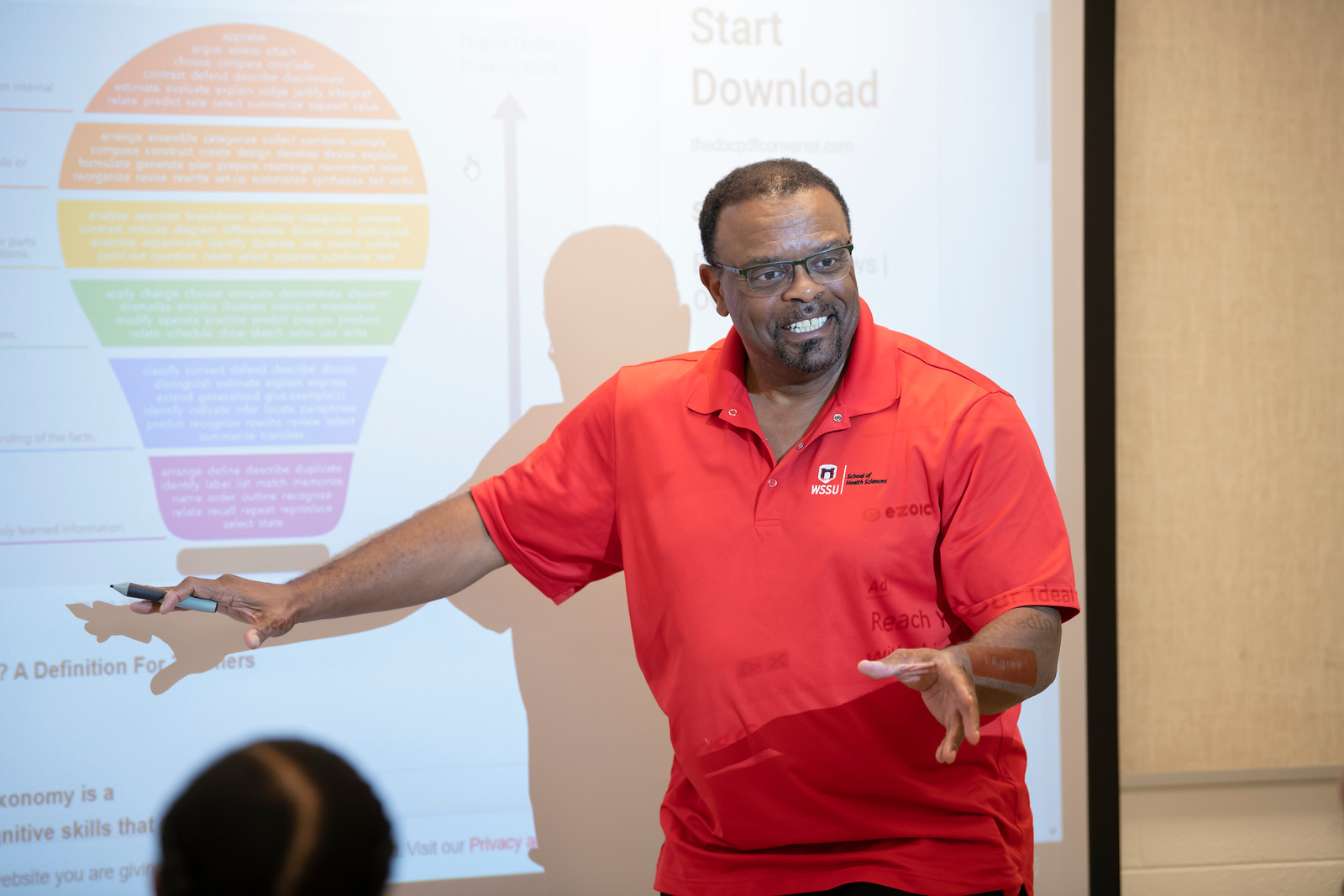| |
Mar 01, 2026
|
|
|
|
|
2022-2023 Supplemental Graduate Catalog [ARCHIVED CATALOG]
Rehabilitation Counseling - MSRC
|
|
 Return to: Graduate Programs Return to: Graduate Programs
Program Description
The Rehabilitation Counseling program provides students with the opportunity to earn a master’s degree in rehabilitation counseling and to become eligible to take the national Certified Rehabilitation Counselor (CRC) examination. The program welcomes employees of state vocational rehabilitation (VR) agencies, non-traditional students, students with disabilities, and students who are traditionally underrepresented.
Rehabilitation counselors assist individuals with a disability to obtain competitive employment and/or achieve independent living goals. Rehabilitation counselors have a multifaceted role that includes vocational services, case management, job development, and placement counseling. The Council for Accreditation of Counseling and Related Educational Programs (CACREP) is the accrediting body for graduate level counseling programs. MSRC program is accredited by CACREP under rehabilitation counseling specialty area.
Mission Statement
The mission of rehabilitation counseling is to train well-qualified rehabilitation professionals who are prepared to work with individuals from diverse backgrounds with physical, developmental, psychosocial, and sensory disabilities.
Learning Outcomes
- Demonstrate background knowledge and understanding of the rehabilitation process based on a holistic, comprehensive service-to-people with disabilities concept.
- Demonstrate the skills necessary to access, analyze, plan, and implement actions needed to facilitate employment and independent living services to people with disabilities.
- Demonstrate the ability to utilize appropriate job technology and accommodations for employees with disabilities.
- Demonstrate the ability to establish effective, person-centered counseling relationships with service team members and consumers with disabilities.
- Demonstrate ethical behaviors as required of professionals in the field of rehabilitation counseling.
- Facilitate interactions with consumers that exemplify multicultural knowledge, respect for diversity, and professionalism.
Application Deadlines
- Admission application deadline for fall (August) enrollment is April 15th.
- Admission application deadline for spring (January) enrollment is November 15th.
- Admission application deadline for summer (May) enrollment is April 1st.
Admission Requirements
To be eligible for acceptance into the Master of Science in Rehabilitation Counseling (MS) program, the applicant must have:
- A baccalaureate degree from an regionally accredited college or university
- A recent Graduate Record Examination (GRE) score
- A cumulative minimum grade point average (GPA) of 2.7
- An in person interview with graduate faculty, faculty from the Rehabilitation Counseling program, and representatives of public, community, or private rehabilitation.
- First priority for admission will be given to applicants who currently work as rehabilitation counselors, work in the field of rehabilitative services, or plan to seek employment as rehabilitation counselors.
Transfer Credits
In accordance with the transfer policy of the Winston-Salem State University and the national accreditation standards for Master’s programs in Rehabilitation Counseling, applicants may be allowed to transfer up to twelve (12) credit hours from an accredited graduate school program. Courses from undergraduate programs are not accepted for transfer into the MSRC program; therefore the program does not provide an equivalency provisions.
Degree Requirements
A total of sixty (63) credit hours with seven hundred (700) clinical hours for practicum (100 clinical hours) and internship hours (600 clinical hours) are required for the MSRC program. The student must maintain a 3.0 GPA to remain in good standing, complete the Certified Rehabilitation Counseling Exam, and a research project or thesis to complete the degree.
Time Limits for Completion
The Master of Science in Rehabilitation Counseling curriculum may be completed in a minimum of two and half (2.5) to three (3) years of full-time study (at least 9-12 credit hours per semester) and one 10- week summer session (9 credit hours total).
Foundation Courses (30 credit hours)
Breadth - Required for Degree (12 credits)
Fieldwork (9 credits)
Areas of Concentration/Emphasis
MSRC program has five areas of emphasis: Clinical Mental Health, Deaf and Hard of Hearing, Rehabilitation Counseling, Transition, and Vocational Evaluation. Each emphasis area requires 12 credits including an elective. Students can choose more of the one concentration/emphasis areas. If the student chooses both rehabilitation counseling and clinical mental health concentrations/emphasis areas, they must have complete two internships: REH 6601 - Internship in Rehabilitation Counseling and REH 6335 - Internship in Clinical Mental Health Counseling to graduate from CACREP approved rehabilitation counseling and clinical mental health programs. Both internship courses will require 600 clinical hours in that each concentration/emphasis area.
Professional Work Requirements
In addition to completing the coursework for obtaining an MSRC degree, students are also required to complete a one 100 clock-hour practicum and a 600 clock-hour internship in one of specialty areas in an approved internship site under university supervision. The internship can be completed in two semesters with 300 clinical hours per semester or one semester with 600 clinical hours.
Career Opportunities
Rehabilitation counselors work in diverse settings, such as state and federal departments of rehabilitation services, independent living centers, special education/transition programs, psychiatric rehabilitation programs, developmental disability programs, substance abuse programs, hospitals, disability management programs in business and industry, and other private and public agencies.
Departmental Links
|
|
|
 Return to: Graduate Programs Return to: Graduate Programs
|
|